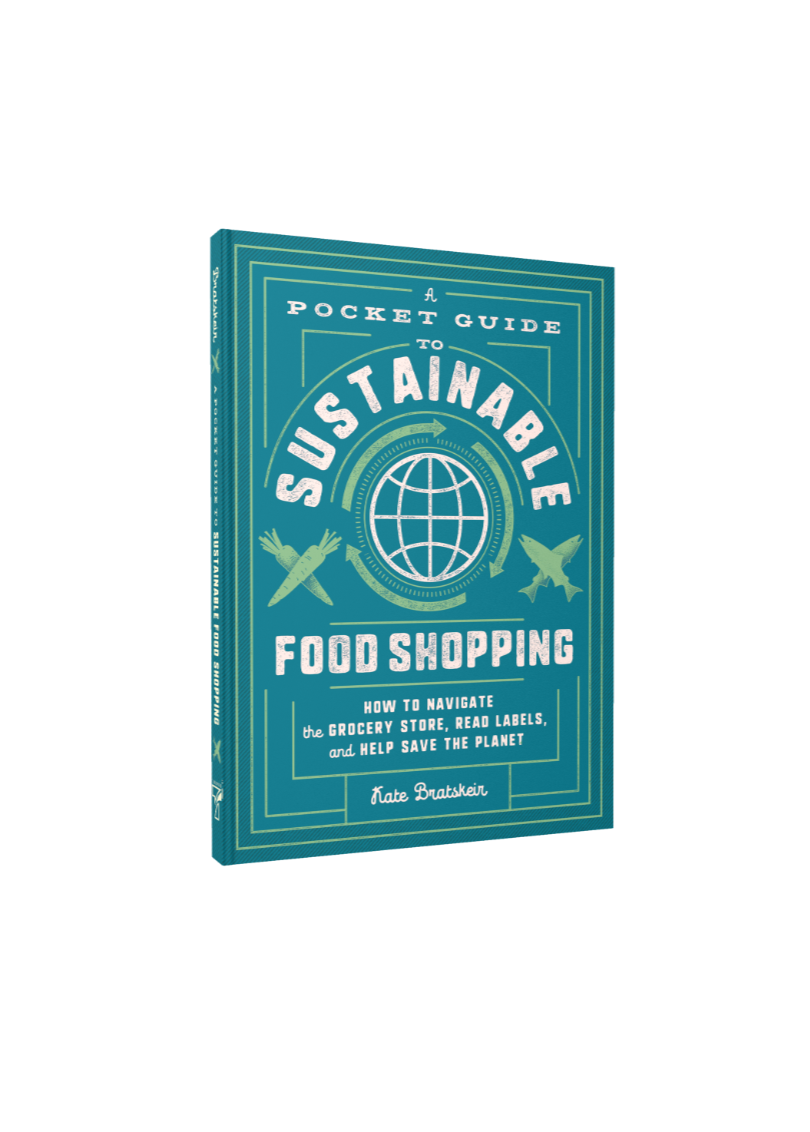Kate Bratskeir
Kate Bratskeir is a writer and editor based in Manhattan, New York. She is the author of "A Pocket Guide to Sustainable Food Shopping," which you can order here.
Order "A Pocket Guide to Sustainable Food Shopping" here!

I wrote this book before the onset of the pandemic in the U.S., but I think it can serve as a useful tool now more than ever. Maybe, as you've begun to navigate your own kitchen and the grocery aisles, you've noticed how much waste you accumulate at home. Or maybe you're interested in consuming less meat, but aren't really sure where to start. Or perhaps you'd like to know if that natural, grass-fed, cage-free, healthy something-or-other is actually delivering on its promise.
This book can help you cut through the noise and better understand the food you buy and cook, hopefully empowering you to make more informed purchasing decisions. This book also acknowledges and explains how the food and environmental crises we're experiencing right now are not at all your fault. So while you're not to blame for plastic bags caught in tree branches, you may feel you have some kind of responsibility to do something about it. I'm with you and I look forward to tackling the mountains of garbage (both figurative and literal) together.
More about "A Pocket Guide to Sustainable Food Shopping"
Reduce your food and packaging waste and lower your carbon footprint with this modern, practical guide to sustainable grocery shopping.
Almond milk, oat milk, rice milk… which of the countless non-dairy milks available on the market is doing the least harm to the environment? How do you decode the language of an egg carton? Is it possible to keep a bundle of fresh asparagus from spoiling so. darn. fast?
If plastic is so bad, why is it on everything? And what can you do about it?
These are just some of the questions The Pocket Guide to Sustainable Food Shopping will help answer. Whether you’re someone who has been making changes for years or you’re clueless about where to start when it comes to sustainability, this book will teach you how to make a difference.

Cutting back on food waste is one of the most impactful ways you can personally help combat climate change. With extra pages for taking notes and a space to perform your own waste audit at home, this book provides the tools to make better choices about what goes in your grocery cart, and how you ultimately treat those items once they’re in your home.
You’ll learn some hard-to-swallow facts about the food industry and gain some actionable tips for making the grocery store—and the world—a more ethical place. You’ll become better at reading food labels, getting acquainted with terms you can trust, and recognizing the kind of words to regard with skepticism. You’ll gain the confidence to shop in the bulk section, ask your butcher questions about sourcing, and perhaps finally relieve some of the guilt you feel over the mountain of plastic bags accumulating beneath your sink.
If you’re ready to make a change, let’s get to it.